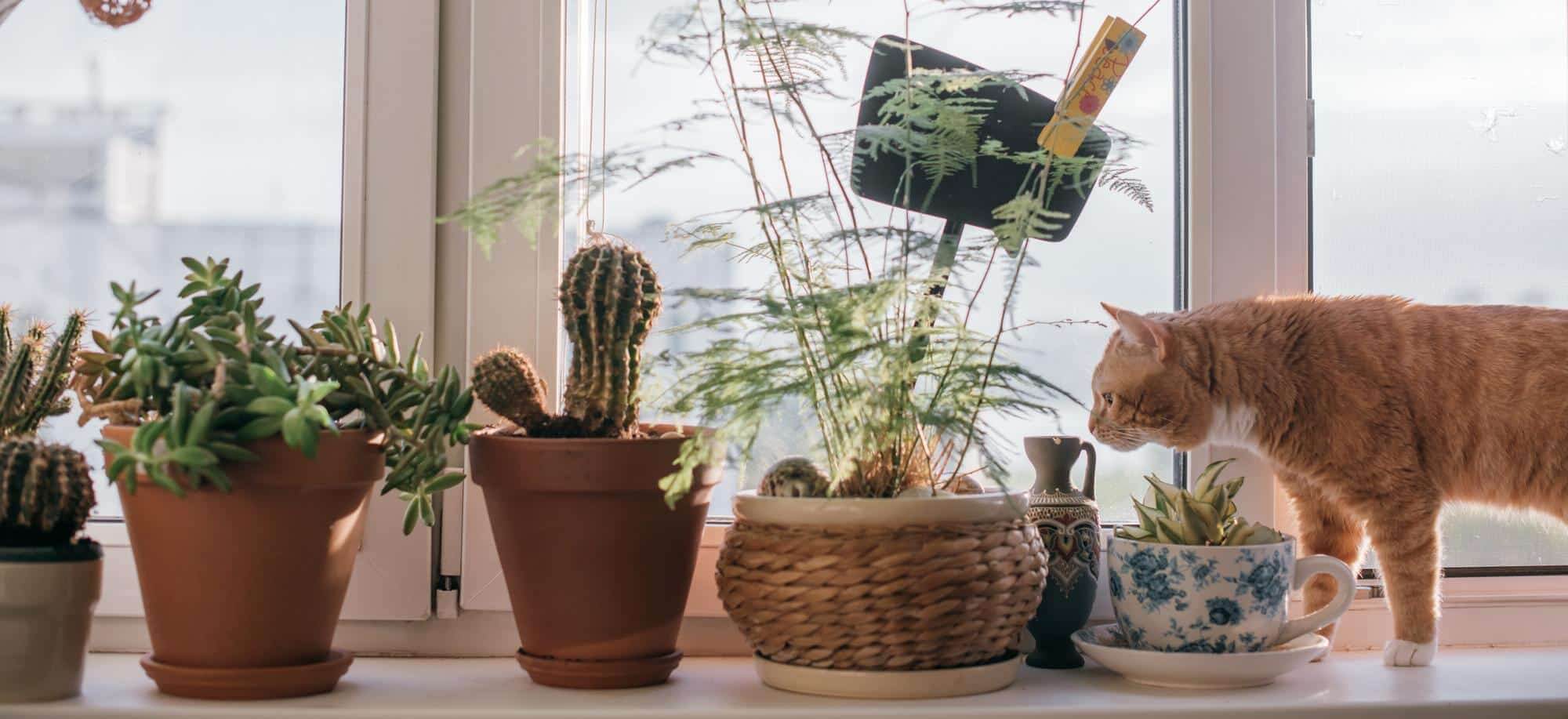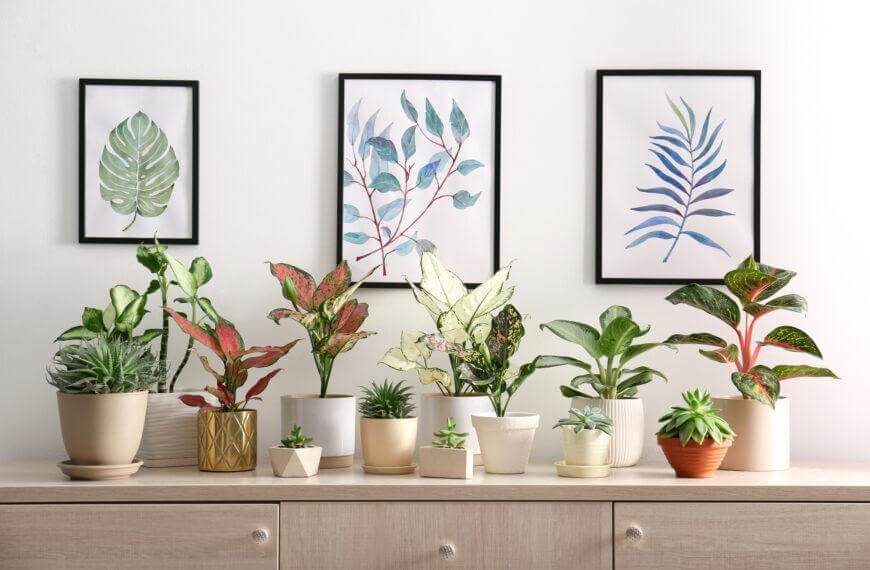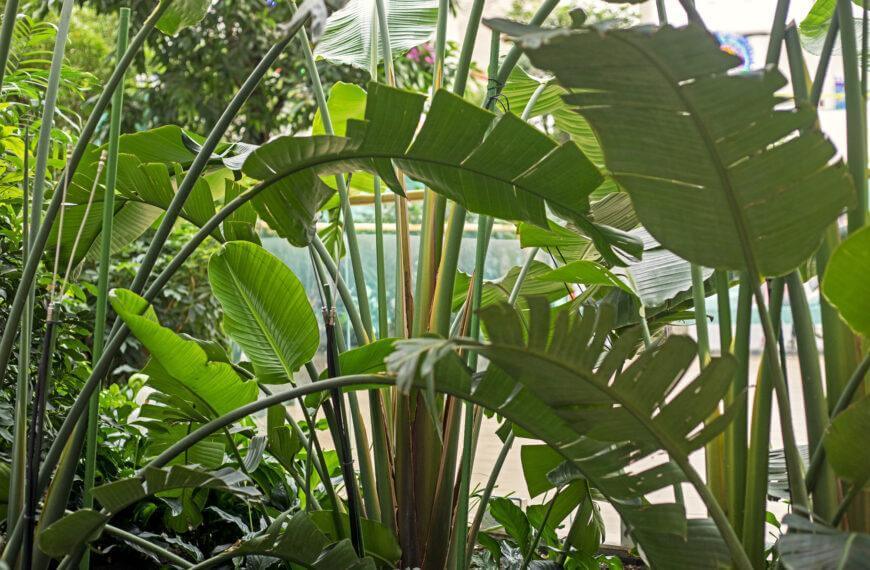Indoor plants add a touch of green and purify the air. But, you must choose non-toxic plants if you have pets. This article has the top 10 pet-friendly indoor plants.
These plants bring benefits like stress reduction, improved mood, and increased productivity. Spider plant, bamboo palm, and Boston fern are popular choices.
The toxicity of plants varies. So, consult a vet before introducing any new plants to your house.
Pro Tip: Place these non-toxic plants in high areas or train your pets with toys and regular exercise. Your pets will love plants that are safe for them!
Top 10 Pet-Friendly Indoor Plants for Your Home
Indoor plants can add a natural touch to your home decor but choosing the right plants is crucial, especially when you have pets at home. To ensure your pets stay safe, it is important to choose pet-friendly indoor plants. Here are some top picks for pet-friendly indoor plants that will liven up your space without putting your furry friends at risk.
- Spider Plant
- Money Plant
- Areca Palm
- Boston Fern
- Lady Palm
- Bamboo Palm
- Christmas Cactus
- Cast Iron Plant
- Prayer Plant
- Polka Dot Plant
While these plants are pet-friendly, it is important to remember that overwatering them can lead to mold growth and cause respiratory problems in pets. Additionally, some pets may have an allergic reaction to certain plants, so it is important to watch for any signs of discomfort and promptly remove the plant if necessary.
One tip to keep your pets safe is to place the plants in areas that are out of reach or alternate spaces that your furry friend cannot access. Another suggestion is to regularly inspect your plants for any signs of damage or pests. By choosing the right pet-friendly indoor plants and taking the necessary precautions, you can create a beautiful space for you and your pets to enjoy together.
Even arachnophobes can’t deny the charm of a spider plant in their home.
Spider Plant
The spider plant is a popular indoor pick due to its unique shape and simple upkeep. Plus, it’s safe for pets – a definite plus! This particular leafy friend can even clean the air, making it one of the top 10 pet-friendly indoor plants. It also reproduces quickly through ‘spiderettes’ that can be rooted in water or soil.
You’ll only need to give it minimal care, and bright, indirect sunlight. NASA even found that spider plants are one of the best air-purifying plants around. They remove harmful toxins like formaldehyde, so they’re perfect for homes with pets or children.
People have also believed that spider plants bring luck and prosperity. Could be because of their ability to spread easily and flourish in any environment. Whatever the reason, adding a spider plant to your home will certainly up its aesthetic and benefit you and your furry pals.
Boston Fern
The scientifically acclaimed “Nephrolepis exaltata“, otherwise known as Boston Fern, is a great choice for pet owners. It not only adds beauty to your home but also purifies the air by removing toxins like formaldehyde and benzene.
- Bright, but indirect light and frequently moist soil are essential for Boston Fern to thrive.
- This plant can grow up to 5 feet and its delicate fronds require pruning to maintain their shape.
- It loves humid environments and benefits from occasional misting.
- Plus, it’s non-toxic to pets!
Fertilizing every few months will ensure your Boston Fern’s lush green foliage. It’s said that a sea captain discovered these ferns flourishing on a ship sailing from South America. He brought them to North America, giving us the opportunity to enjoy them in our homes. So, if you’re in need of a friend, why not adopt a Friendship Plant? It’s low-maintenance and won’t mind shedding a bit on your couch.
Friendship Plant
Pilea peperomioides, or the Friendship Plant, is a pet-friendly and low-maintenance houseplant. Its round leaves and unique look make it a stylish addition to any home. It thrives in moderate lighting and grows up to 12 inches tall. And, you can easily share it with friends, as it is easy to propagate.
This green friend has more to offer than its adorable looks. It has medicinal properties that can help with high blood pressure, headaches, and skin diseases. Plus, it purifies the air by absorbing carbon dioxide, making it a great companion on bad air days.
If you suffer from allergies but want something attractive in your living space, the Friendship Plant is your ideal indoor friend. Don’t miss out on welcoming this lovable green fellow into your home. Get yours today!
African Violet
This mini plant, otherwise known as an African Violet, was first found in East Africa’s tropical areas. It got its scientific name, Saintpaulia ionantha, from Baron Walter von Saint Paul, a German governor who discovered it in the 18th century.
These plants are easy to care for, needing only diffused light. They like it moderately moist and enjoy acidic soil with a pH between 5.5 and 6.5. Plus, with proper care, they can flower all year long!
African Violets have gone beyond their ornamental value and have even been used in medicine, said to cure headaches, coughing and sore throats.
To look after your African Violet, keep it away from direct sunlight and water with room temperature water. Then, enjoy the beauty of its lovely flowers! Also, for those with pets, Peperomia is a great plant for them to nibble on.
Peperomia
Peperomia are among the top 10 pet-friendly indoor plants. They show off their ornamental, shiny leaves – either peperomia obtusifolia or peperomia clusiifolia species.
These foliage expressively enhance décor schemes. They are exceptionally hardy and suit indoor environments perfectly. Bright indirect lighting is ideal.
Peperomias are great at eliminating toxic pollutants from indoors. Plus, they need little water and low humidity to flourish.
Researchers found that Peperomias can actually exchange communication chemically through scent glands on their leaves – according to a study in the Environmental Science and Pollution Research International Journal. Who knew? Fa la la la la, la la llama-brush!
Christmas Cactus
If you want to add a bit of color to your indoor garden, why not go for the Holiday Cactus? Here are some factors to bear in mind:
- Christmas cactus can bloom in pink, red, white, orange, and purple.
- It likes bright, indirect light, but can tolerate lower levels.
- Soil must be well-draining and only water when the top inch is dry.
- Christmas cacti prefer humidity, but can manage in normal conditions.
- They bloom in winter, making them a great festive addition!
Note that for Thanksgiving cactus, cooler temperatures (around 60°F) and high humidity will be better.
Plus, the Christmas Cactus was named for its blooming season coinciding with Christmas! NASA has also stated that it purifies air, absorbing toxins like formaldehyde.
If you’d like a plant that looks good in red, go for the Lipstick Plant!
Lipstick Plant
Aeschynanthus radicans, commonly known as the ‘tube’ or ‘lipstick’ plant, got its name from its bright red tubular blooms resembling a tube of lipstick.
It loves low to medium indirect light and well-drained soil. It also enjoys higher humidity levels, making it great for bathrooms or kitchens.
Plus, it’s a low-maintenance choice for novice gardeners and non-toxic, so no worries about pets ingesting it!
This foliage has aerial roots that trail down from the pot and is loved by hummingbirds who can drink its nectar with their long beaks.
NASA even conducted a study showing that having Lipstick Plant indoors can reduce VOCs and improve air quality.
Want something exotic? Get an Areca Palm – it’ll make your home feel like a tropical paradise!
Areca Palm
This pet-friendly plant is popular for its beauty and air-purifying qualities. The Areca Palm has long, arching fronds which create a relaxed atmosphere.
It needs bright, indirect sunlight and regular watering. But don’t overdo it – this plant is sensitive to root rot. It is also great for allergies and breathing problems.
Be aware that the leaves of the Areca Palm can be toxic to pets if eaten. So keep an eye on your furry friends near it.
Pro Tip: To keep the Areca Palm looking great, wipe down its fronds with a damp cloth every few weeks. This removes dust. Make your cat feel like a tiger with a Haworthia plant, but don’t let them hunt it!
Haworthia
This small, succulent perennial plant is a pretty sight! Its stemless, dark green leaves grow in a rosette shape, making it perfect for the desk or coffee table.
Haworthia plants are known for their air-purifying properties. They help remove toxins from indoor air – great for pet owners! Plus, they require minimal maintenance, prefer indirect light and need occasional watering.
Sap from the leaves may cause irritation if ingested or come in contact with sensitive skin. But, for pet owners, it’s worth it for the health benefits.
The intricate details of Haworthia patterns and shapes have been studied through art and science. It was discovered in 1768 by Adrian Hardy Haworth. In Japan, these plants are symbols of a long life. Other cultures see them as healing and protection against evil spirits.
No matter your reasoning, a Haworthia plant is sure to add elegance and health benefits to any indoor space – who needs a pony when you can have a ponytail palm as your trusty indoor companion?
Ponytail Palm
The Bulbous Trunk Plant, also known as the Ponytail Palm, is a popular pet-friendly indoor plant. Its unusual trunk shape and thin leaves bring a visual charm to any living space.
Common Name: Ponytail Palm
Scientific Name: Beaucarnea recurvata
Watering: Water sparingly, let soil dry out fully before watering again.
Lighting Needs: Needs bright, indirect sunlight but can tolerate low light.
Pet Safety: Safe for pets, no known toxicity risk.
This plant can get large if it has lots of space and time. If you want a smaller houseplant, then buy one that is already mature.
Other pet-friendly indoor plants to consider are the Boston Fern or Spider Plant. They need minimal maintenance and also clean the air.
Having a pet-friendly indoor plant not only looks great, but it also reduces stress levels and purifies the air. Your pets and your home will thank you!
Benefits of Pet-Friendly Indoor Plants
Indoor Plants that are Safe for Pets: Enhancing Your Home and Your Pet’s Health
Pets are precious members of our families, and we want to ensure that they remain in good health. One of the ways to achieve this is by introducing pet-friendly indoor plants in our homes. These plants not only add an aesthetic touch to our interiors but also provide benefits to our pets that help them to lead a healthier life.
Advantages of Having Indoor Plants Safe for Pets:
- Improving Air Quality: Some pet-friendly indoor plants like spider plant, areca palm, and Boston fern, purify the air by removing toxins, including formaldehyde, benzene, and ammonia.
- Reducing Stress and Anxiety: Studies have shown the positive effects of plants on reducing stress and anxiety levels in pets, leading to a more relaxed and comfortable environment.
- Preventing Boredom in Pets: Indoor plants can serve as a natural source of stimulation, helping pets to stay more active and engaged, thus reducing boredom and lethargy.
Additional Information about Pet-Friendly Indoor Plants:
In addition to the benefits listed above, pets tend to be curious creatures and may show an interest in these plants. Therefore, it is essential to choose plants that are not just safe but also non-toxic for pets. Some of the other factors to consider when selecting indoor plants are lighting, humidity, and temperature requirements.
A Historical Story About Pet-Friendly Indoor Plants:
Indoor plants have been used for their health benefits for centuries, with evidence of their use dating back to ancient civilizations such as the Egyptians and Greeks. During the Victorian era, indoor plants became increasingly popular in the Western world as a means of expressing status and good taste. Today, with an increased awareness of the benefits of indoor plants, pet-friendly varieties have become a popular choice for pet lovers.
Need to purify the air in your home? Get a pet-friendly plant, because nothing says clean air like a furry friend and a leafy companion.
Air Purification
Indoor plants have a superpower! They can purify the air by absorbing toxins and releasing clean oxygen. Aloe Vera, Spider Plant, and Peace Lily are great examples of air-cleansers. They reduce pollutants like benzene, ammonia, formaldehyde and more.
Plus, these pet-friendly plants are noise absorbers and can help with mental health. Recently, a friend told me how a mint plant helped her cat recover from respiratory issues. She was worried about allergies but it worked! Now she has several pet-approved indoor plants in her home.
Who needs therapy when plants can boost your mood? They don’t even charge a co-pay!
Mood Improvement
Introducing pet-friendly indoor plants can give your emotional well-being a significant boost. Greenery reduces stress and anxiety, creating a positive ambiance.
People feel calmer and more relaxed when among plants. Moreover, they purify the air, which is healthier for you and your pet.
Spider plants, African violets, Boston ferns – these are some pet-friendly plants that can create a peaceful environment. Fresh air and natural surroundings make pets happier and longer-living.
An article in the Journal of Physiological Anthropology stated that even looking at nature from indoors can lower cortisol levels. So pet-friendly plants give you the outdoors without worrying about Fido eating them.
Natural Decoration
Bringing nature indoors with pet-friendly plants is an awesome way to add color and warmth to your living spaces! Not only do they make a room look nice, they also improve air quality and provide lots of health benefits.
Indoor plants purify the air by filtering out pollutants like carbon monoxide, formaldehyde and benzene. Plus, they can reduce stress, sharpen mental clarity and create a calming atmosphere. Spider plants, Boston ferns and bamboo palms are easy to find and bring greenery into your home.
Going beyond their looks and health benefits, indoor plants can be functional decorations when placed well. For example, hanging spider plants or English ivy in an empty corner fills up space and adds texture to a boring wall.
To get the most out of your indoor plants, match their placement with the right lighting. Some plants like rubber plants and peace lilies need bright light, while others like snake plants and ZZ plants prefer low light. You can use tabletop arrangements like succulents or trailing vines on shelves and bookcases.
In conclusion, pet-friendly indoor houseplants are ideal decorations that provide more than just aesthetics. They bring life into living spaces, clean the air, create calm environments and improve our mental wellbeing. So, next time you want to liven up your home, check out good potting soil mixtures including peat moss, coconut powder, perlite and vermiculite. Make sure to use zero pesticides and keep a steady humidity level after placing them in proper lighting setups. Whether you’re a crazy cat lady or just really love plants, incorporating pet-friendly indoor plants into your home is a win-win!
Conclusion
Indoors plants bring life and beauty to your home, but they can also be hazardous to pets. We have the perfect solution – a list of non-toxic plants that are safe for humans and pets alike. They’re easy to maintain, reduce toxins in the air, and have therapeutic effects. When selecting a plant, make sure it’s out of reach of pets and consider their behavior and sunlight requirements.
Our top 10 pet-friendly indoor plants are:
- Spider Plant
- Boston Fern
- Bamboo Palm
- African Violet
- Prayer Plant
- Ponytail Palm
- Peperomia
- Lipstick Plant
- Polka Dot Plant
- Baby Rubber Plant
Science Daily reports that indoor plants can reduce stress levels by up to 60%. So, why not add these safe, non-toxic plants to your home and create a calming atmosphere for both you and your furry friend?
Frequently Asked Questions
Q: What are the Top 10 pet-friendly indoor plants?
A: The Top 10 pet-friendly indoor plants are: Spider plant, Boston fern, African violet, Christmas cactus, Bamboo palm, Areca palm, Rubber plant, Prayer plant, Ponytail palm, and Catnip.
Q: Are these pet-friendly indoor plants non-toxic?
A: Yes, these Top 10 pet-friendly indoor plants are non-toxic. They are safe for your furry friends to be around.
Q: How do I care for these pet-friendly indoor plants?
A: Each plant has its own care requirements, but in general, these pet-friendly indoor plants prefer bright, indirect light and moderate watering. It’s important to do your research and make sure you’re providing the right environment and care for each plant.
Q: Can these pet-friendly indoor plants still be harmful to pets?
A: While these plants are considered non-toxic, it’s still important to supervise pets around them. Some pets may have a sensitivity or allergy to certain plants, or they may still try to eat them, which can cause digestive issues. It’s always best to err on the side of caution.
Q: Where can I purchase these pet-friendly indoor plants?
A: These Top 10 pet-friendly indoor plants can typically be found at local nurseries, plant shops, or even online. Be sure to read the plant description and care requirements before purchasing to ensure it’s the right fit for you and your pet.
Q: Are there any other pet-friendly indoor plants I should consider?
A: Yes, there are many other pet-friendly indoor plants to choose from. Some popular options include the Boston ivy, Polka dot plant, Friendship plant, and Cast iron plant. When selecting plants, always make sure they are safe and non-toxic for your furry friends.




